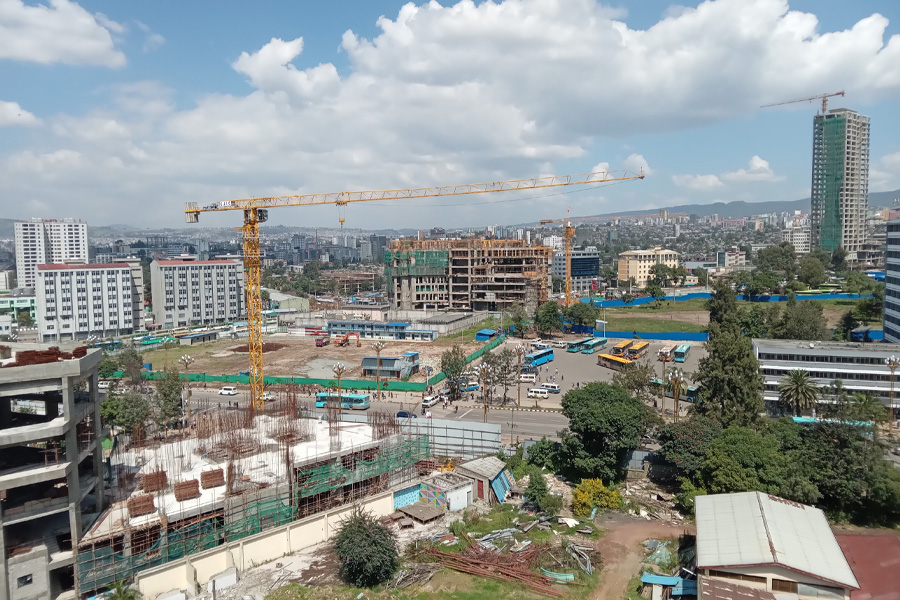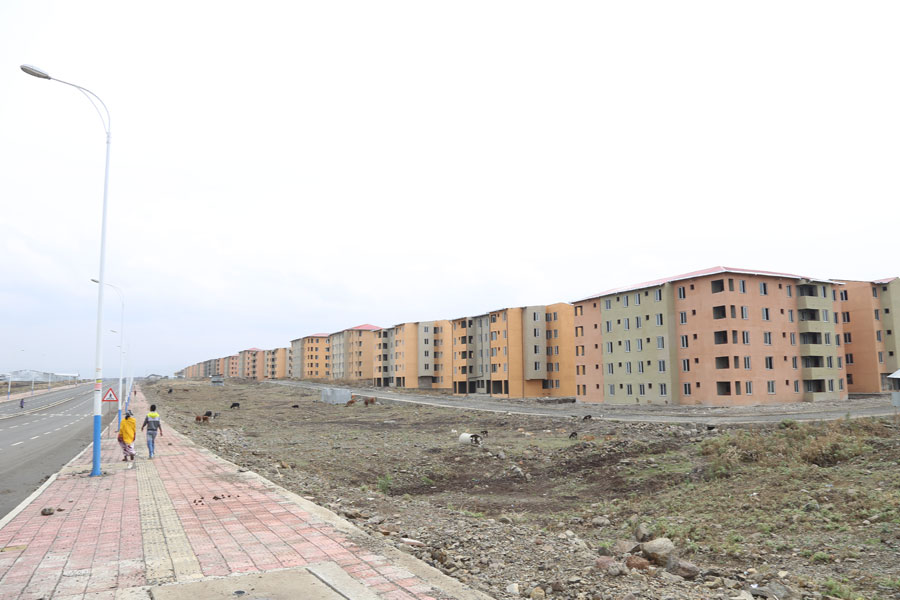
As 10,500 blue and white taxis, commonly referred to as “lada”, are pending extinction in line with overhauling the transport sector, the city Transport Bureau officials put forth a couple of schemes on how to go about the implementation.
They proposed to knock down the vehicles and sell the spare parts or melt down and sell the metal to local manufacturers and submitted the recommendation to the Ministry of Finance two weeks ago.
Dawit Zeleke, deputy head of the Bureau, said the ultimate decision falls in the hands of the Ministry that is spearheading the initiative, indicating that the Bureau is merely providing a recommendation.
"It's the safest and systematic way of termination," he told Fortune.
Lada taxis gained popularity in the country in the 1970s after the Dergue Regime turned to the Soviet Union for car imports.
Owing to their long-time service to residents of the capital, the Addis Abeba City Administration designed a project to give a proper farewell which led to an agreement for a duty-free privilege to import complete and partially knocked-down parts of vehicles two years ago.
The agreement was made between the vehicle owners and the Ministry of Finance until it was repealed by Minister Ahmed Shide four months ago.
The vehicle owners are on board with the replacement entering a deal with Elauto Engineering & Trading Plc, to assemble the imported spare parts. But they were hoping to get a more profitable outcome upon the termination. They prefer to sell the spare parts rather than melt down the property.
Ayer Amba Taxi Meter Plc. is one of the 211 taxi owner companies registered at the Addis Abeba Transport Bureau, with 39 taxi owners under its fleet.
General Manager, Azmach Fantahun disclosed they had already sold the spare parts of five vehicles to local shops around the Somali Tera area, which serves as an underground hub for "lost and found" parts.
According to Azmach, close to 250,000 Br is earned from the spare parts, which rather dwindles to 30,000 Br when the vehicles are melted.
"It would be a huge loss on our part," he said.
Officials, however, believe that vehicles surpassed the end of their lifespan. They cite that emissions from these old timers are a source of urban air pollution that could be avoided in a world where vehicles are responsible for 25pc of energy-related greenhouse gas emissions.
"Their prominent disadvantage should not be overlooked," said Mohammed Hussien, technical advisor at the Bureau.
It has become customary to find Lada taxis idle on the streets of the capital.
The decline in business looms as the capital's residents prefer to seek services from taxi-hailing companies to meet their transportation needs. This has left blue and white taxi owners marginalised, with their slice of the pie growing thinner by the day.
Muhdin Gergicho, 39, is sitting in his taxi around Garmet, trying to salvage a customer.
The vehicle has been his lifeline for nearly 11 years, but he has found himself struggling with higher maintenance costs than what he gets.
"It has become rather difficult," he said.
Muhdin is one of the 50 members of Lafto Meter Taxi S.C., who made deals with Elauto Engineering Plc. two years ago. He has made a 130,000 Br downpayment to receive a brand new automobile in the 120-day span to no avail.
"None of us received the new vehicles," he said.
A total of 8,600 vehicles are pending import and assembly, with Elauto providing only 180 pieces to the share companies.
Incorporated four years ago with a 200 million Br paid-up capital, Elauto Engineering & Trading Plc. has been assembling cars in Eastern Industrial Park.
It is located 35Km out of the capital at Dukem town, Oromia Regional State and recently opened its doors in the Dire Dewa Free Trade Zone, with 15,000sqm shade.
The Managing Director Aselefe Bogale disclosed that they distributed the first batch seven months ago among 41 taxi owners' companies, each company receiving up to six vehicles.
He said 60 are pending for a half-yellow paint that is deemed a mandatory procedure.
Elauto is currently assembling 540 taxi vehicles. However, another problem is on the horizon that left taxi owners with no financial backing for the new vehicles.
According to Aselefe, commercial banks are shying away from financing due to the prevailing liquidity crunch, which impends the distribution of vehicles even if they are ready.
The foreign currency difference to be covered by the owners has made them apprehensive, making the current vehicles cost 1.5 million Br each.
Debub Global and Abyssinia banks were working with the taxi owners, with the former allowing them to finance 80pc after a downpayment while the latter provided the suppliers' credit for nearly 3,000 vehicles imported.
"The rest of the vehicles have no way of getting out without the finances," said Aselefe.
Experts applaud the initiative of the government to suggest economically enduring ways of replacing vehicles.
Abiy Alemu, a transport management lecturer at Kotebe Metropolitan University, said the time has served right for the authorities to replace the old vehicles, which have become the major contributors to unmitigated fuel consumption and mass carbon emission in the country.
Abiy suggested exporting the scrap metals to other countries through an international bid.
"That will prove to be more profitable," he said.
In the meantime, he recommends that government sets its eyes on supporting recycling manufacturers to make a profit out of mass production.
PUBLISHED ON
Jul 22,2023 [ VOL
24 , NO
1212]

Radar | Sep 04,2021

Radar | Dec 07,2019

Fortune News | Mar 23,2019

Radar | Aug 27,2022

In-Picture | Nov 16,2024

Radar | Mar 30,2019

Fortune News | Mar 09,2019

Commentaries | Apr 24,2021

Sunday with Eden | Sep 10,2022

Fortune News | Jun 25,2022

Dec 22 , 2024 . By TIZITA SHEWAFERAW
Charged with transforming colossal state-owned enterprises into modern and competitiv...

Aug 18 , 2024 . By AKSAH ITALO
Although predictable Yonas Zerihun's job in the ride-hailing service is not immune to...

Jul 28 , 2024 . By TIZITA SHEWAFERAW
Unhabitual, perhaps too many, Samuel Gebreyohannes, 38, used to occasionally enjoy a couple of beers at breakfast. However, he recently swit...

Jul 13 , 2024 . By AKSAH ITALO
Investors who rely on tractors, trucks, and field vehicles for commuting, transporting commodities, and f...

Jun 28 , 2025
Meseret Damtie, the assertive auditor general, has never been shy about naming names...

Jun 21 , 2025
A well-worn adage says, “Budget is not destiny, but it is direction.” Examining t...

Jun 14 , 2025
Yet again, the Horn of Africa is bracing for trouble. A region already frayed by wars...

Jun 7 , 2025
Few promises shine brighter in Addis Abeba than the pledge of a roof for every family...